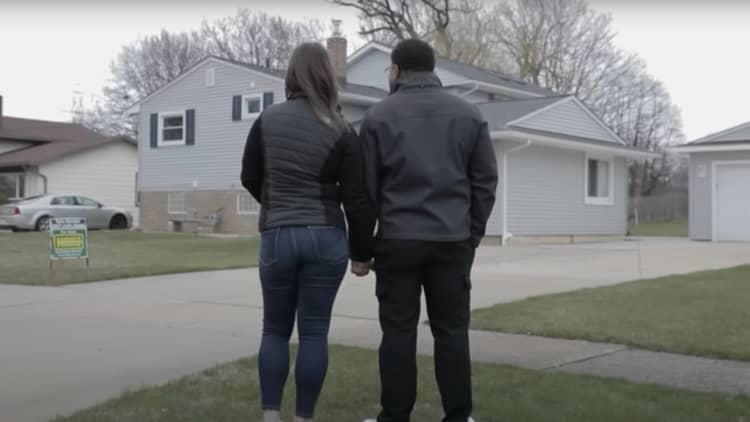Svetikd | E+ | Getty Images
1. You’re unsure about the long-term
According to Kamila Elliott, a CFP and member of CNBC’s Advisor Council based in Atlanta, prospective homebuyers should have conviction about where they want to live. This includes considering factors such as the city or suburb, specific neighborhood, and the potential impact of job loss if they had relocated for work. If the answer is no to any of these questions, renting is likely the better option. Elliott, who is also the co-founder and CEO of Collective Wealth Partners, advises against buying a home if you can’t commit to living there for at least three years.

Flexibility is a significant advantage for renters, as highlighted by Elliott. Renting allows individuals to test out an unfamiliar place without the commitment of buying a home and potentially discovering that they don’t like the location. Additionally, renting avoids the upfront transaction costs of homeownership, such as realtor’s fees, which can be quite expensive. Home prices can also be volatile, making it risky to sell a home after a short period of ownership.
2. You don’t like the ‘nuisance’ factor
Guido Mieth | Stone | Getty Images
Renting instead of buying also offers a lifestyle benefit. Renters are free from dealing with the “nuisance factor” of scheduling appointments for home repairs or paying for maintenance. These responsibilities typically fall on the landlord. The convenience and social benefits of amenities like security cameras, a doorman, gym, or pool can also enhance the renting experience. On the other hand, owning a house may appeal to those seeking a large yard with a garden or space for their pets to roam.
3. Benefits of ownership are ‘vastly overstated’
Richard Newstead | Moment | Getty Images
While homeownership is often touted for its financial benefits, Jude Boudreaux, a senior financial planner with The Planning Center, believes these benefits are “vastly overstated.” He warns against buying a home simply because it feels like the right thing to do without considering the potential financial risks and regrets. Affordability analysis should go beyond comparing monthly rent and mortgage costs and include other expenses like utilities, home improvements, maintenance, property taxes, and homeowners insurance. In 2022, the average homeowner paid over $15,000 a year in addition to their mortgage for these costs, according to Clever Real Estate. The tax deduction for mortgage interest has also been reduced, making it less valuable. Boudreaux points out that the net return on stocks has been higher than on housing in the United States over the years.
I don’t think it should be an automatic for everyone. You could live your whole financial life renting and be very happy.
Jude Boudreaux
Senior Financial Planner with The Planning Center
While homeownership can be seen as an investment and a source of financial security, the experiences and returns vary depending on factors like timing, holding period, and location. Wealth-building through homeownership also depends on the ability to hold onto the property during downturns. Lower-income and minority borrowers may face challenges in this regard and may benefit less from homeownership. The returns on housing have been historically similar to those of stocks on a global scale, but in the United States, stocks have provided a higher net return compared to housing.

Denial of responsibility! VigourTimes is an automatic aggregator of Global media. In each content, the hyperlink to the primary source is specified. All trademarks belong to their rightful owners, and all materials to their authors. For any complaint, please reach us at – [email protected]. We will take necessary action within 24 hours.


